So You Want to Write About Your Life?
I’ve been writing about myself or wanting to write about myself since before I can remember. When I finally got into a creative writing program in my 30s, there was no “Creative Nonfiction” track or even a class on memoir writing, so I wrote highly autobiographical stories for my fiction class; but as Dave Eggers once said about fiction writing, I felt like I was “driving with a clown suit on.” After graduate school, I was a mother of two, mostly at home. I discovered a new magazine called Brain, Child, which was filled with creative nonfiction written by mothers. I soon started writing for this magazine and discovered that my true genre is memoir and have been writing that ever since. In 2008, my first full-length memoir, How to Sleep Alone in a King-Size Bed, was published by Crown.
When I’m not writing, I’m teaching a class called “Writing the Memoir” at the University of Washington and coaching individual writers. Many of the students who come to the class come with just a hazy idea that they want to write about their lives, and I love guiding them through the process of discovering what exactly they want and need to write about.
Here’s my best advice for getting started on memoir writing:
- Read great memoirs—both those that are bestsellers and those that are critically acclaimed. If you want to write a memoir, you need to have a good sense of how they’re structured. If you want to sell a memoir, focus on reading popular memoirs published in the last five years. A few of the memoirs I recommend: The Kiss by Kathryn Harrison, Drinking: A Love Story by Caroline Knapp, Lit by Mary Karr.
- Carry a notebook, just a small one. I actually didn’t set out to write a memoir about my divorce, but I had this notebook in my purse, and I was so miserable that I started pulling it out and writing down random thoughts to keep myself from going crazy. The very first note I wrote down was about a woman in my attorney’s waiting room with hair so thin I could see her scalp and a big stack of legal papers on her lap. This brings me to my next point…
- Get in the habit of taking your observations seriously. One of the differences between would-be writers and actual writers is that writers follow their own thoughts “as if” they were the thoughts of a great thinker. Memoir writing is a collection of your insights and portrayals of your ordinary life. So when you have an observation or insight, take it seriously even if it seems to be about the most mundane topics—the patterns of shoppers in your local grocery store, your neighbor’s habit of watering the sidewalk with his sprinkler.
- Get some good books about writing. In my opinion, there aren’t enough of these. But, I have a few that I fully recommend. For encouragement as a writer (and don’t kid yourself, we all need this): Writing Down the Bones by Natalie Goldberg and Bird by Bird by Anne Lamott. For a good sound understanding of a memoir’s structure and some great getting-started exercises: Your Life as Story by Tristine Rainer. I also recommend Writing the Memoir by Judith Barrington.
- Take a class or hire a coach. Many universities offer night classes in memoir writing and many writers, such as myself, coach writers over the phone or in person.
To learn more about my coaching, visit me at theopaulinenestor.com.
Theo Pauline Nestor’s fiction and non-fiction have been published in a number of places including Brain, Child, Alligator Juniper, msn.com, austinmama.com, happenmag.com and The New York Times. HOW TO SLEEP ALONE IN A KING SIZE BED was a Kirkus Reviews Top Pick for Reading Groups.
Thank you, Theo, for visiting The Stiletto Gang!



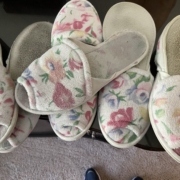
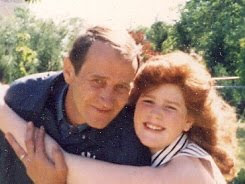
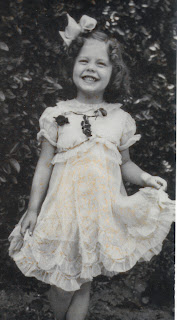
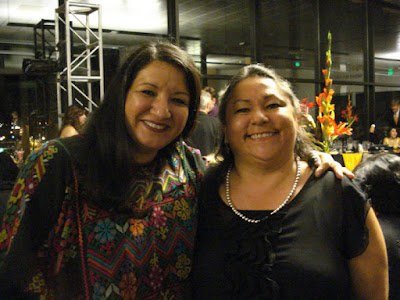


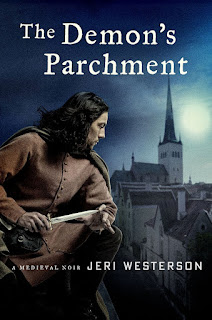
Theo, thanks so much for joining us today! Your tips are awesome, even for non-memoir writers, especially taking your observations seriously and keeping a notebook handy. I have a tiny notebook in my purse that I constantly take out to jot down a thought, observation, or a bit of overheard dialogue. Love your suggested writing books, and I'd also add ON WRITING by Stephen King. I feel like someday I might want to tackle a memoir about going through boob cancer at 42, a year after being named a St. Louis Magazine "top single" and meeting my nine years younger hubby. If I do, I'll know which expert to turn to for advice. 😉
Theo, great advice and very timely. I was just thinking today about writing down some of my experiences with cancer, just like Susan. (Between us, Susan, with your boob cancer and my groin cancer, we'd have quite a tome.) I'm going to print out your suggestions, Theo, and keep them handy. Maggie
Maggie, we may have to collaborate someday (between other deadlines!). 😉
I think writing about your life when something traumatic has happened can be helpful to the author and to those who read it.
Though I've had plenty of traumatic events in my life (how could I help it I've lived so long), I chose to include them in fictional writing. Worked just as well for me.
Marilyn
Great advice. Thanks so much.